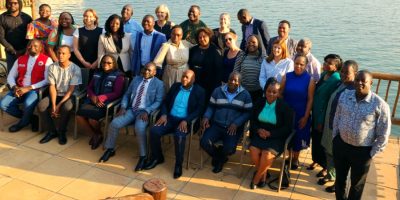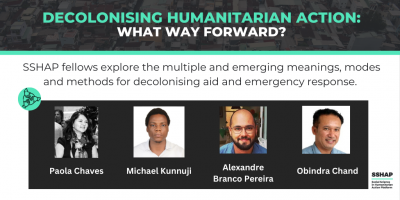Protection of artists during times of conflict has no specific framework in international humanitarian law. However, cultural sites, artefacts and institutions are protected. Advocates working from the position of ‘cultural rights’ understand that artists who are specifically persecuted should be protected for defending human rights. Artists are targeted during conflict just like material culture for their symbolic contribution to society. During times of armed conflict, artists have few places to go. This worsens in protracted conflicts that drag on for generations. In contemporary South Sudan, conflict has driven out artists seeking protection and freedom of expression. This article contributes empirical evidence from South Sudan to reveal how artists experience the protection gap and how they become informal protection stakeholders. Identifying self-protection strategies gives insights for opening up further research on social and political phenomena impacting disputed territories or places impacted by long-term symbolic violence. In these contexts, this chapter shows the pathways artists take to not only seek shelter but to continue their work in exile.
Article
Seeking safety: Identifying protection gaps for artists in South Sudan
Regions
East and Southern AfricaCountries
South SudanRegional Hub
Central and East Africa HubRegional Hub Themes
Displacement and humanitarian protectionDOI: https://doi.org/10.1111/1758-5899.13500
See also
Blog
Bottom-up humanitarian protection: the experience of a young South Sudanese car-cleaner in Khartoum
What kinds of humanitarian protection are available for displaced people living outside of refugee camps? This article explores the forms of safety and protection available to displaced south Sudanese people living in Sudan, including community-based mechanisms such as family and…
Central and East Africa Hub
2021
Article
Community self-protection, public authority and the safety of strangers in Bor and Ler, South Sudan
Protection is not simply something done or delivered to people by states, humanitarian organisations and armed peacekeepers. We use interview data from communities in Bor and Ler, South Sudan, long affected by conflict, to show how attention to the relationship…
Central and East Africa Hub
Global Policy
2024
Article
Humanitarian protection activities and the safety of strangers in the DRC, Syria and South Sudan
Many contemporary humanitarian organisations derive their legitimacy from their claims to protect civilians. Yet, what these organisations do in its name includes a diverse and contested range of activities that are often far from what global publics and affected populations…
Central and East Africa Hub
Global Policy
2024
Research paper
Protection and well-being of adolescent refugees in the context of a humanitarian crisis: Perceptions from South Sudanese refugees in Uganda
Improved understanding of refugees’ perceptions of provision of humanitarian support is important to improve design and delivery of humanitarian assistance. Refugee adolescents face a range of adversities, while the phase of displacement likely influences risk factors for adolescent refugees. However,…
Science Direct
2019
Article
The safety of strangers: the realities and politics of protecting civilians in times of war
Recent wars have brutally shown that civilians are not safe. This is despite high-level global commitments and multi-billion-dollar humanitarian spending to keep civilian strangers protected. The high civilian death tolls in recent armed conflicts are prompting new questions about how…
Central and East Africa Hub
Global Policy
2025
Related content

blog
Risk Communication and Community Engagement (RCCE) is a critical component of cholera outbreak response. Sharing insights, strategies, and best practices for RCCE from national and regional efforts to combat cholera can enable actors to co-create solutions to common challenges and help pave the way towards stronger and more empowered communities.
Ginger A. Johnson, Rachel James, Sophie Everest, Nadine Beckmann
8 Sep 2024
EVENT
14 December 2023
Decolonising Humanitarian Action: A Multiplicity of Meanings, Modes and Methods
14 December 2023
Decolonising Humanitarian Action: A Multiplicity of Meanings, Modes and Methods
On 14 December 2023, this webinar, led by SSHAP Fellows, explored the multiple and emerging meanings, modes and methods for decolonising aid and emergency response. Le 14 décembre 2023, ce webinaire, animé par les boursiers SSHAP, explorera les significations, modes et méthodes multiples et émergents pour décoloniser l'aide et les…



